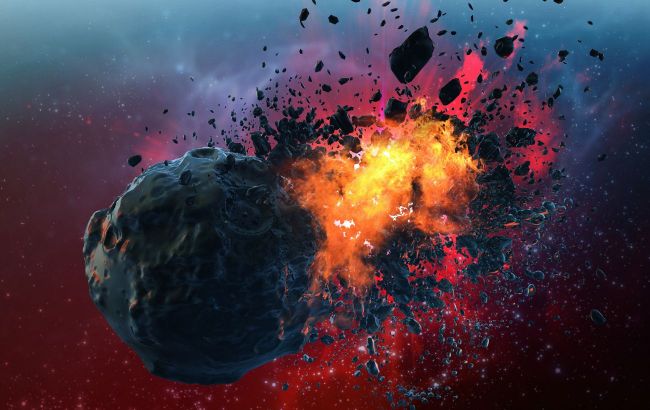God of Chaos asteroid may become more dangerous for Earth: Scientists name condition
 A scientist talks about an asteroid that threatens the Earth (photo: Getty Images)
A scientist talks about an asteroid that threatens the Earth (photo: Getty Images)
Canadian astronomer Paul Wiegert has found that preliminary estimates of the trajectory of the huge asteroid God of Chaos, which is approaching the Earth, may change dramatically.
RBC-Ukraine reports on the changes in the flight path of this giant asteroid, citing the Daily Star.
A giant asteroid called God of Chaos with the scientific designation 99942 Apophis was first discovered in 2004. In 2017, scientists reported that, according to preliminary calculations, the probability of its collision with the Earth in 2029 is 2.7%.
However, additional observations of this asteroid have shown that its flight path is changing and a collision with the Earth is unlikely both in 2029 and 2036. According to scientists, the Chaos God asteroid was supposed to approach the Earth on 13 April 2029 and pass no closer than 45,540 kilometers from our planet.
A new study by Canadian astronomer Paul Wiegert has found that this could change dramatically if a small object hits the asteroid. He explained in a very scientific way:
The probability of an invisible small asteroid deflecting Apophis enough to send it on a collision course with Earth in 2029 (d ≳ 3.4 m, Δv > 5 × 10-2 ms-1) is about 10-8.
The scientist added that only 5% of such pulses are directed in the right direction to cause a collision with the Earth, so the overall probability of a small impact sending Apophis into a collision with the Earth is less than one in two billion.
He points out that the distance ‘d’ would have to be at least 3.4 meters or more, and the change in velocity ‘Δv’ would have to be more than 5×10-2 meters per second for the asteroid's trajectory to change.
"An additional element of the story is that Apophis has been largely unmonitored by telescopes since May 2021 and will remain so through 2027. This arises simply because of the relative geometry of Apophis, Earth, and the Sun, which puts the asteroid in the daytime sky for the time span in question," Wiegert explains.
Earlier we wrote about the giant asteroid Apophis.

